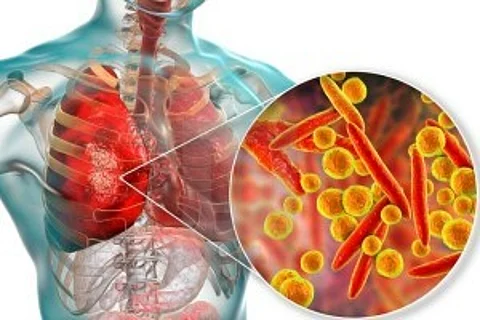

WHILE mycoplasma pneumonia, most commonly known as “walking pneumonia,” is not new in the country, the public must never lower their guard and not be complacent, as it is still a threat to public health.
Dr. Hakan Oztemiz, a resident doctor of the Southern Philippines Medical Center (SPMC), made this statement at the Kapehan sa Dabaw organized by the Philippine Information Agency.
“Mycoplasma, it’s always been there, it’s always been a cause [of] pneumonia… Baka na-infect kayo before… Should we be scared? Of course, all diseases naman is may risk,” Oztemiz said.
Recently, mycoplasma pneumonia has been causing concern among the public following an outbreak of the said disease in China.
However, Oztemiz assured that there is no surge in the country and that they are continuously on the lookout for all types of pneumonia, not just mycoplasma pneumonia.
He explained that mycoplasma pneumonia is caused by small bacteria that lead to respiratory illness by damaging the lining of the respiratory system, such as the throat, lungs, and windpipe.
He said it is called “walking pneumonia,” as patients may not feel that they are infected because they only experience mild flu-like symptoms and can still perform their daily activities.
“Ani ka mild iyang symptoms. Same siya'g symptoms sa pneumonia, pero kaya ra sa imong lawas. So maong di na kaayu ka luya, di na kaayo ka ana ka hangak (This is how mild the symptoms are. They have the same symptoms with pneumonia, but your body can withstand it)”, he stressed.
However, Oztemiz emphasized that although mycoplasma pneumonia is less severe compared to typical pneumonia, there are instances where it can become severe, especially among patients with underlying health conditions and those with weak immune systems.
“Though mild ito, may potential naman na mag-severe, especially sa mga patients na may comorbidities like asthma or any infection sa atong airway, sa atong baga (in our airway, in our lung),” he said.
He added, “If ever na may mga pasyente na mag critical, ang cause niyan is not because sa bacteria but more on sa immune response. Yung mga patient na less ang immune response are more vulnerable sa diseases.”
However, he said that this is only common among patients with asthma, in which the disease triggers asthma attacks, which increases the severity of the condition.
Oztemiz revealed that the elderly and children are more susceptible to the disease.
“It can infect everyone, but it is common sa mga elderly age, sa mga 60 above o children age 18 below. Kasi yung mga immune system nila, is not that well developed. As we get older, ang immune system din natin is mag le-lessen hindi sya as strong as when we were younger,” he explained.
Like any respiratory illness, Oztemiz said that mycoplasma pneumonia can spread through droplets, mainly when sneezing or coughing, and the spread is very likely in confined or closed areas like schools, stressing that prevention is still essential to combating mycoplasma pneumonia.
He urged the public to cover their mouths whenever sneezing or coughing, wash their hands, use a face mask, although not mandatory, and most especially to get vaccinated to curb the spread of the disease.
“Sa mga children and sa mga elderly maganda na magpa-vaccine, magpabakuna. We have flu vaccine and pneumonia vaccine na available. Pwede kayo magpunta sa SPMC meron naman tayong mga vaccine,” he said.
He emphasized that although no vaccines have been developed for mycoplasma pneumonia, having flu and pneumonia vaccines can prevent severe mycoplasma pneumonia.
For those with flu-like symptoms like cold, cough, sore throat, and fever, Oztemiz advised them to stay at home, get some rest, avoid going outside, drink lots of water, and take antipyretic drugs like paracetamol whenever they feel feverish.
However, he emphasized that if there are no improvements in the symptoms after a week, seek immediate medical consultations, as this is already mycoplasma pneumonia and could worsen if not given medical attention. PIA DAVAO